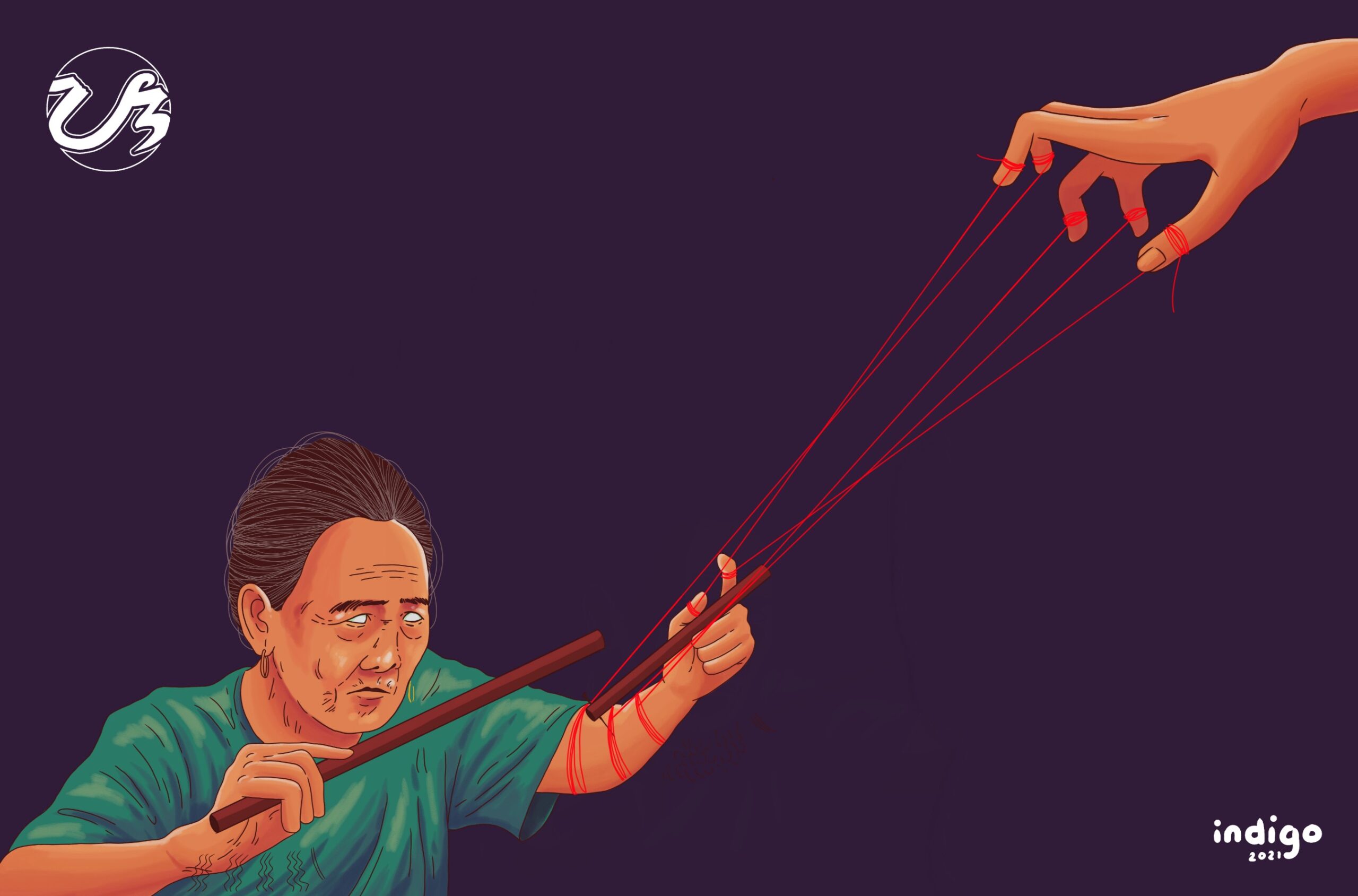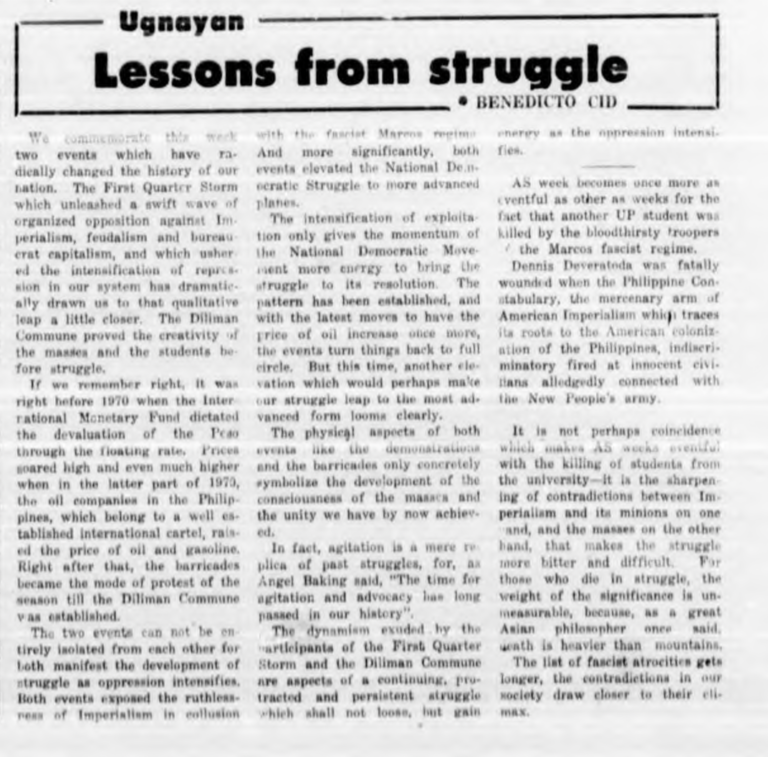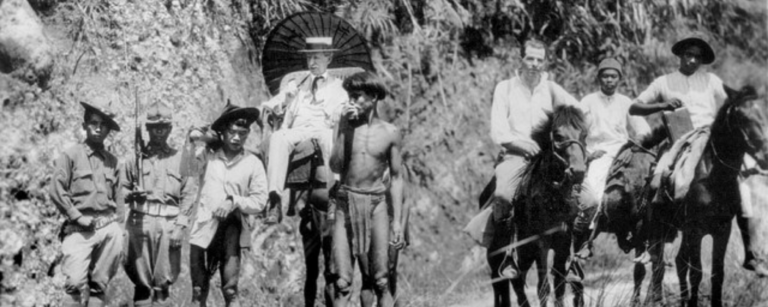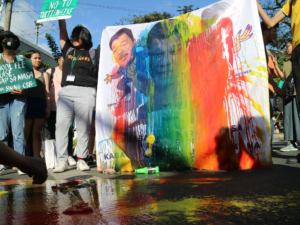
While a whining man wails about his weekly woes in Malacañang, the country’s Indigenous Peoples (IPs) continue to struggle as they become subjects of human rights violations and other forms of abuse.
Even worse, some are also merely treating them as a means to an end.
Under a fascist regime, what future is there to look forward to for our IPs? Will their voices ever be amplified, heard, and listened to, or will their voices be drowned out by this whining man and his weekly woes?
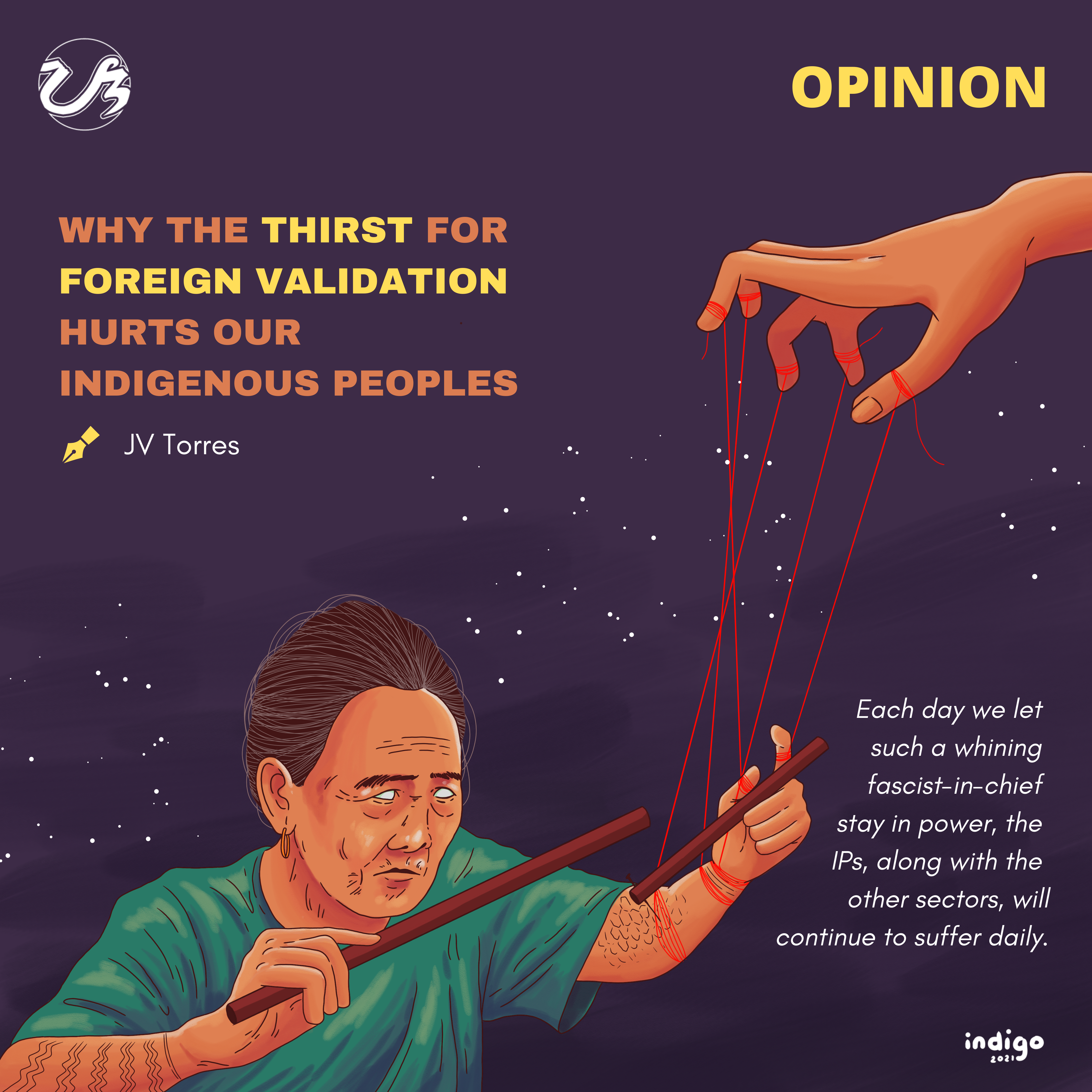

Recent events surrounding Apo Whang-Od, the last of the mambabatoks of the Butbut tribe, and Nuseir Yassin, commonly known as Nas Daily, have yet again shown how foreign entities exploit centuries worth of rich indigenous culture and history for the sake of profit.
The batok is an art form which serves as a symbol of strength, power, beauty, and status for the Butbut Tribe. Unfortunately, content creator Nas Daily has transformed it into a mere online tutorial worth 750 pesos through an “academy” that bears his name.�
This is not the first time that Philippine indigenous culture has been the subject of exploitation. The case of Nas Academy and the batokart form is but one among the many historical accounts of foreign entities exploiting and taking advantage of indigenous peoples’ culture and ancestral domains. This unfortunate history even stems back to the arrival of the first colonial powers on the country’s shores.
The Indigenous Peoples Rights Act of 1997 was enacted to protect and promote the rights of Indigenous Peoples and Indigenous Cultural Communities (ICCs). This law also paved the way for the creation of the National Commission on Indigenous Peoples (NCIP).
From its conception until now, the NCIP has always acted in the service of the state. They shut down178 Lumad schools due to false claims that they were being used as terrorist breeding grounds , disenfranchising thousands of Lumad children in the process.
In 2020, the NCIP issued a Certificate of Precondition, without any consent from the Blaan tribe, to the controversial Sagittarius Mines Inc. (SMI) allowing the $5.9B mining project in Tampakan, South Cotabato to continue. Underneath this project is the massacre of the Capion family who stood against the intrusion of SMI in their ancestral lands. The project pushed through despite the existence of a local ordinance and a court ruling prohibiting it.
Today, the NCIP is led by Allen Capuyan, a retired colonel and former Manila International Airport Authority (MIAA) official who has been tagged for his involvement in the smuggling of Shabu. Considering this, shouldn’t the NCIP be led by an actual IP instead of a retired colonel? Appointing an actual IP to lead the NCIP is necessary for the Indigenous struggle to be fully understood. It is also in this understanding that appropriate plans and solutions are grounded upon.
Despite the enactment of IPRA and the creation of the NCIP, the IPs continue to live in constant fear of violence and abuse as militarization in their ancestral domains persists while giant industries continue to seize their lands. Indeed, enactment of the law is one thing, but effectual implementation is another.
In a 2018 speech by President Rodrigo Duterte at the Panagtagbo Alang sa Kalinaw ug Kalambuan: An Indigenous Peoples Leaders’ Summit, he mentioned his plan of opening Mindanaoan ancestral lands to foreign investors so that Lumads may “generate wealth.” The president, speaking in front of hundreds of Lumad leaders hailing from different communities in Mindanao, accused the audience of failing to put their lands to good use.
This plan of granting investors legal and unimpeded access to Lumad lands has been an enduring issue that various groups representing Indigenous Peoples oppose.
Furthermore, the creation of NTF-ELCAC through Executive Order (EO) 70 further exacerbated the struggles faced by IPs and ICCs. The EO institutionalizes Duterte’s preferred way of “negotiating peace” — abject violence.
According to Bayan Muna Representative Eufemia Cullamat, also a Manobo Lumad leader, EO 70 only creates divisions among the Lumad and justifies military attacks against them. She also pointed out that the Indigenous Peoples Mandatory Representatives (IPMRs), who were appointed by the NCIP, have become mere puppets of the military. Instead of being the first to condemn state forces for violating laws and invading ancestral lands without getting Free Prior and Informed Consent (FPICs) from the ICCs/IPs themselves, they have failed the Lumad whom they are supposed to serve.
This only goes to show how the NCIP allies itself with the state instead of championing the interests of Indigenous Peoples. Instead of creating a sanctuary for IPs, the NCIP further contributes to the looming threats that Lumad communities contend with every day.
The state’s determination to serve no one else but capitalists and foreign powers fuel indigenous struggle. It is in this desire to seek foreign favor that the state deliberately compromises the welfare of its people.
However, such craving for foreign validation is not limited to the upper levels of government — it is also apparent in our everyday activities on social media.
Such is the existence of the “Pinoy baiting” phenomenon where foreigners take advantage of the superficial Pinoy pride by overreacting to anything tagged as Filipino. Pinoy baiting gives a social media content creator tons of views within a short amount of time which gives them more profit.
It is in this manner that Filipinos are seen as nothing but a means to an end. The idea behind Pinoy baiting can even be traced back to when foreign colonizers had us believing that Filipino culture is inferior.
As such, Filipinos must go through the process of deviating not only from this colonial mentality but from the shackles of imperialism as well. Only then can we become champions of our own culture and land, with the firm belief that the Filipino is standing on equal footing with the rest of the world. It is also in this firm belief that Filipinos can collectively join in the struggle of Indigenous Peoples and safeguard their right to their land.
However, as long as the whining man continues to wail about his woes in Malacañang, and his cronies bask in the power of their master, the plea of the masses will never be heard. It is high time for the masses to fight back against the oppressive thieves dressed in suits and coats and their brand of performative politics.
Each day we let such a whining fascist-in-chief stay in power, the IPs, along with the other sectors, will continue to suffer daily. It is high time for us to realize how collective action bears more weight than the wails of a whining man. The times call us to militantly stand together with the masses as we amplify the calls of the marginalized and oppressed.
In 2022, let us not elect another set of leaders who will only bait the Filipino people with their empty promises, dancing, and clownery. We should vote for leaders whose interests and plans serve that of the masses. For it is also in our collective power shall we be fully able to put an end to the long winding indigenous struggle.�


